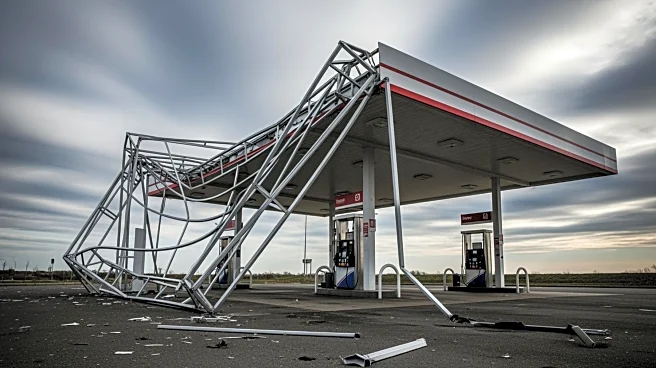What's Happening?
A boat carrying Rohingya migrants from Myanmar sank near the Thai-Malaysian border, resulting in hundreds missing, seven confirmed dead, and 13 rescued. The Malaysian maritime agency reported that the boat left Myanmar's Rakhine state three days prior
to the incident. Rescuers are searching a 170 square nautical mile area near Langkawi Island. The Rohingya community has faced years of conflict and ethnic violence in Myanmar, leading many to seek refuge in neighboring countries. The migrants were reportedly instructed to transfer from a large vessel to smaller boats to avoid detection as they approached Malaysia.
Why It's Important?
The sinking of the migrant boat underscores the dire circumstances faced by the Rohingya community, who are driven to undertake dangerous sea journeys due to violence and poor living conditions in Myanmar and Bangladesh. The incident highlights the challenges faced by countries like Malaysia in managing refugee influxes and the need for international cooperation to address the root causes of the crisis. The involvement of criminal networks in facilitating such journeys raises concerns about human trafficking and exploitation.
What's Next?
Search and rescue operations are ongoing, with authorities attempting to locate the missing migrants and the other two boats involved. The incident may prompt discussions on regional cooperation to combat human trafficking and improve refugee protection. International organizations may increase efforts to provide humanitarian aid and support to affected communities.
Beyond the Headlines
The tragedy highlights the ethical and legal challenges in providing asylum and protection to refugees. It raises questions about the responsibility of the international community in addressing the Rohingya crisis and ensuring safe migration routes. Long-term solutions may require diplomatic engagement to resolve the political and ethnic tensions in Myanmar.















